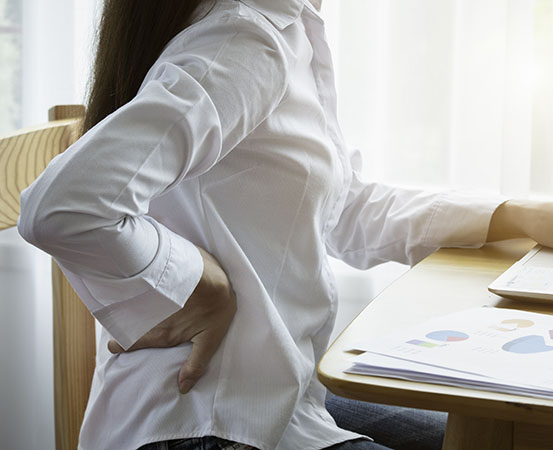
The pelvic floor includes a group of muscles, ligaments and connective tissue that stretch across the pelvic opening and keeps the uterus, bladder, bowel, vagina and rectum in place. Due to a dysfunction or weakening of these muscles, the organs start drooping and push against the vagina, which results in its displacement. This is called Pelvic Organ Prolapse (POP). It causes discomfort but it’s not often talked about, experts say.
Why does prolapse happen?
“The oestrogen hormone released during the menstrual cycle, ensures thickness of the vaginal wall and healthy collagen in the pelvic floor muscles, holding the pelvic organs in place. Oestrogen is not released in menopause and consequently the tissues weaken or get damaged, causing POP,” said Dr Nandhini Ezhumalai, consultant obstetrician and gynaecologist at Fortis Hospital, Vadapalani, Chennai.
READ MORE :
Hematuria: Why blood in urine must not be ignored
Bladder cancer: symptoms, risk factors and treatment
Smoking: The path to bladder and kidney cancer
Urinary catheters may cause infection, anxiety
She added, “Sometimes, prbladderolapse may occur in young individuals because of congenital (present at birth) tissue defect or autoimmune disorders.”
Symptoms of POP
POP mostly occurs in women. The only type that affects men is a prolapsed rectum, which is quite rare. According to the Association for Pelvic Organ Prolapse Support (APOPS), an US based non-profit advocacy agency, about 50 per cent women suffer from POP, depending on their age and the organ affected.
The symptoms seen according to APOPS are:
- Vaginal pressure and pain
- Bulge in vaginal tissue
- Pain or decreased sensation during intercourse
- Backache
- Difficulty in passing urine/bowel movement
- Pain and discomfort in the lower abdomen
What are the causes of prolapse?
“POP can be extremely restrictive, and the quality of life reduces considerably. Those with a history of difficult vaginal delivery or forceps/vacuum delivery are more likely to be diagnosed with prolapse. Prolonged labour, multiple vaginal births, ageing, menopause, obesity, chronic cough, and chronic constipation are other causes of POP,” said Dr Padmini Prasad, gynaecologist/sexual health expert and Medical Director, Ramamani Nursing and Maternity Home, Institute of Sexual Medicine, Bengaluru.
Women and prolapse
Many women suffer silently, even if it is treatable because of embarrassment and lack of knowledge. They continue with regular work and move around with a big lump or mass hanging outside their genitalia, says Dr Prasad.
She added, “It can lead to urine and defecation problems, and cause ulceration/bleeding in the uterine cervix. Younger women with POP may have infertility issues. Prolapse is diagnosed by a pelvic examination with or without straining or coughing.”
Types of Prolapse
- Cystocele (bladder prolapse) – weakening of tissues between the bladder and vagina leading to the bladder pushing the vagina.
- Enterocele – dropping of the small bowel into the pelvic cavity and pushing into the vagina.
- Rectocele – weakening of tissues between rectum and vagina leading to rectum bulging in the vagina. In males, the rectum may turn inside out and protrude into the anus.
- Uterine prolapse – drooping of the uterus, pushing down into the vagina. Uterine prolapse could occur due to congenital defects but can also be seen after childbirth or injury to tissues providing uterine support. The uterus may come out of the vaginal opening, if it worsens.
- Vaginal vault prolapse – top of the vagina starts descending into the vaginal opening. This occurs when a woman has undergone surgery to remove the uterus (hysterectomy) and the muscles supporting the upper part of the vagina become weak.
Prevention of POP
Dr Padmini Prasad, also the vice-chairperson of Council of Sex Education and Parenthood International, India states the different ways it can be prevented.
- Proper check-ups during pregnancy
- Safe deliveries in hospital with good facilities and specialists
- Proper technique and care during vaginal delivery
- Avoiding prolonged labour
- Post-surgery care after a hysterectomy
- Prompt treatment of chronic respiratory problems
- Lifestyle changes for women with mild prolapse and minimal discomfort
- Fibre-rich diet and increased fluid intake to avoid constipation and straining during bowel movements.
Kegel exercises
According to Dr Nandhini, POP can also be prevented by doing Kegel exercises. They can be done anywhere, either standing or sitting down on a flat surface. Tighten your pelvic muscles as if you are holding your urine for a few seconds. It should feel like lifting the flat surface with your muscles. Do it every 5–10 seconds throughout the day at least 50–100 times a day.
Takeaways
- The weakening of muscles in the pelvic floor leads to organ drooping, called Pelvic Organ Prolapse (POP).
- It can lead to problems when urinating and defecating while younger women with POP may suffer from infertility.
- Regular health check-ups, good post-surgery care and a fibre rich diet with a few lifestyle changes can help you prevent POP.
















